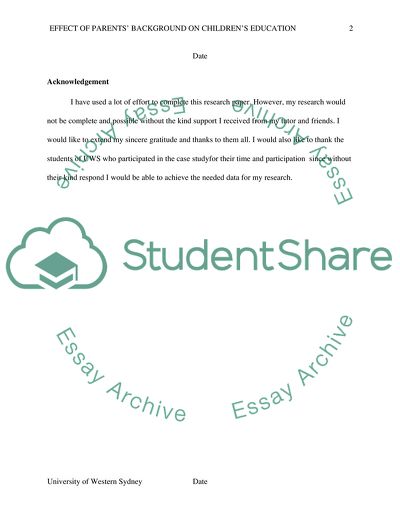Cite this document
(The Role of Parental Background in a Childs Life Research Paper Example | Topics and Well Written Essays - 2500 words, n.d.)
The Role of Parental Background in a Childs Life Research Paper Example | Topics and Well Written Essays - 2500 words. https://studentshare.org/family-consumer-science/1828817-the-impact-of-parents-background-on-childrens-future-educational-choices-a-uws-case-study
The Role of Parental Background in a Childs Life Research Paper Example | Topics and Well Written Essays - 2500 words. https://studentshare.org/family-consumer-science/1828817-the-impact-of-parents-background-on-childrens-future-educational-choices-a-uws-case-study
(The Role of Parental Background in a Childs Life Research Paper Example | Topics and Well Written Essays - 2500 Words)
The Role of Parental Background in a Childs Life Research Paper Example | Topics and Well Written Essays - 2500 Words. https://studentshare.org/family-consumer-science/1828817-the-impact-of-parents-background-on-childrens-future-educational-choices-a-uws-case-study.
The Role of Parental Background in a Childs Life Research Paper Example | Topics and Well Written Essays - 2500 Words. https://studentshare.org/family-consumer-science/1828817-the-impact-of-parents-background-on-childrens-future-educational-choices-a-uws-case-study.
“The Role of Parental Background in a Childs Life Research Paper Example | Topics and Well Written Essays - 2500 Words”. https://studentshare.org/family-consumer-science/1828817-the-impact-of-parents-background-on-childrens-future-educational-choices-a-uws-case-study.


